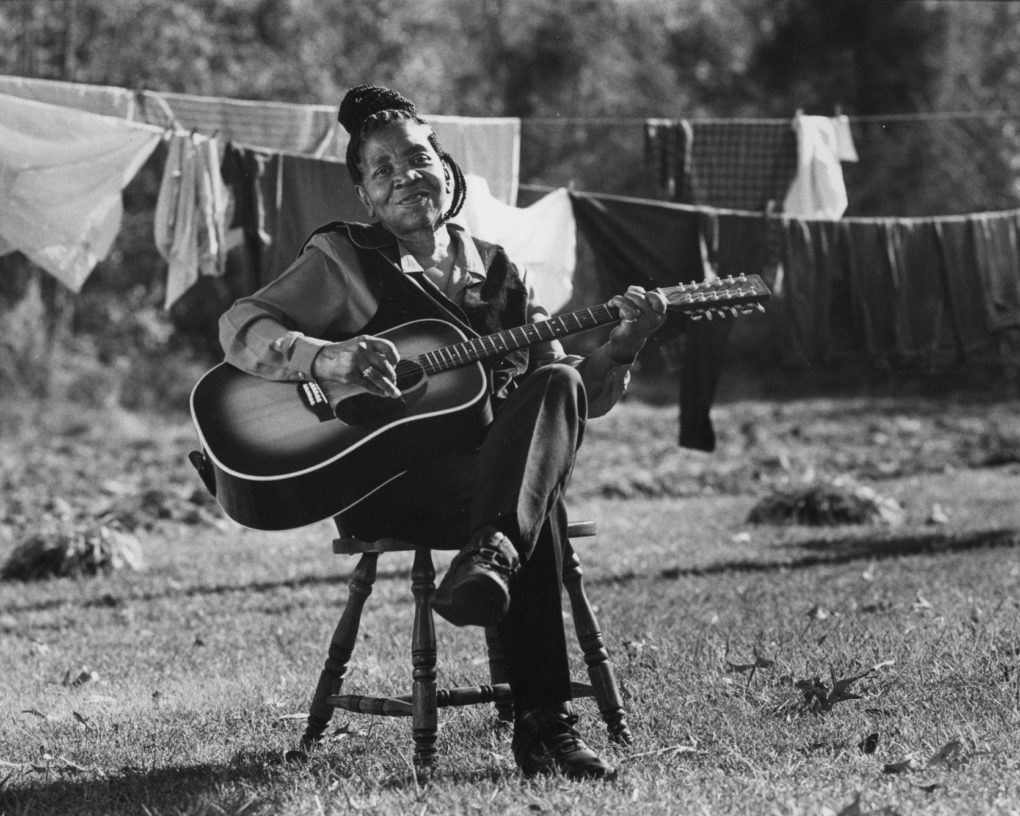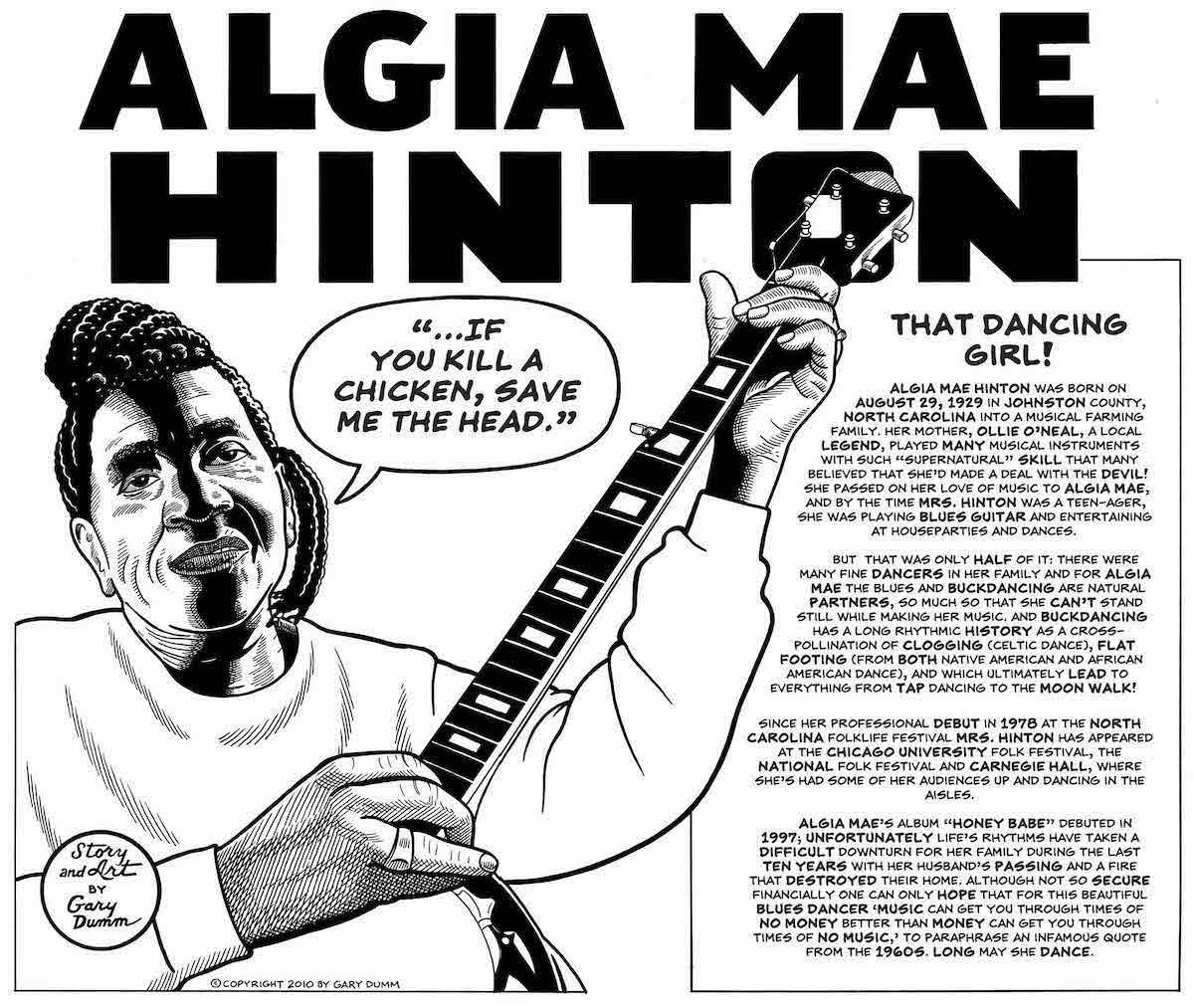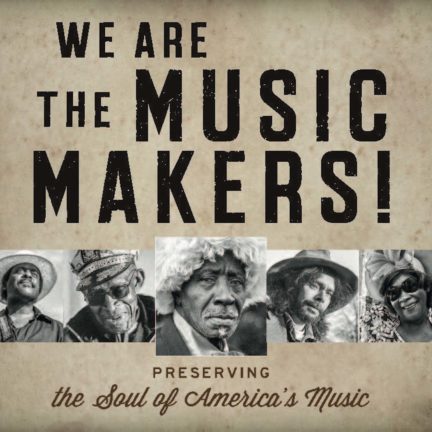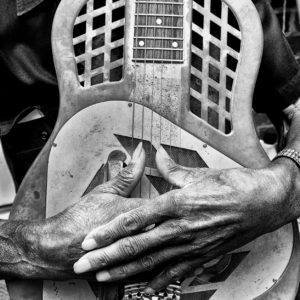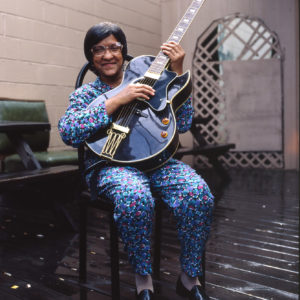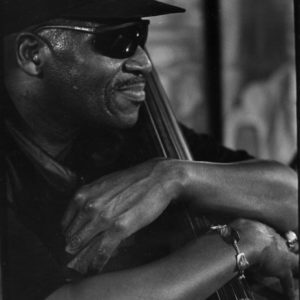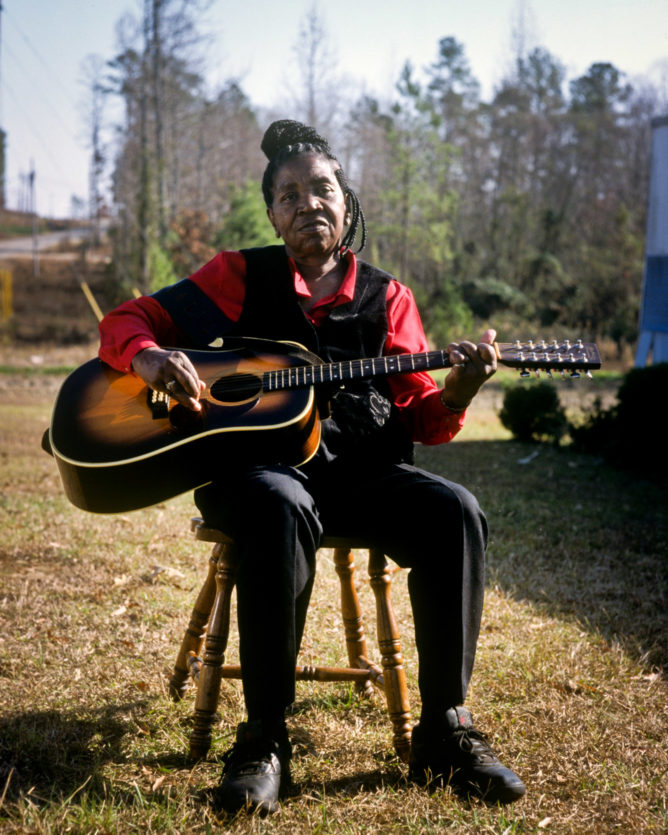
Algia Mae Hinton
BluesAlgia Mae Hinton had the hands of a farmworker, weathered, wrinkled, hands that had picked a million cucumbers. They also picked the most rock-steady Piedmont blues you’ll ever hear.
A Preserver of Some of Our Oldest African American Musical Traditions
When you met Algia Mae Hinton, the first thing you would notice was her hands. They were weathered hands, hands that had picked a million cucumbers. Those farm laborer’s hands produced the money she needed to raise seven children as a single mother in Johnston County, North Carolina.
Those hands also picked some of the most rock-steady Piedmont blues you’ll ever hear, a skill she learned from her mother.
Algia Mae got married when she was 21 and moved from her home to Raleigh, but after her husband was killed in 1965, she brought her seven children back to her home-place and raised them by picking crops in the field. In those days, she reserved her guitar playing for house parties and for her children.
In 1978, the folklorist Glenn Hinson met Algia Mae and helped her take her playing on the road. She played the National Folk Festival and even at a Carnegie Hall event called “Southern Roots.” And the guitar wasn’t the only thing in her repertoire. Algia Mae danced in an eastern North Carolina tradition that no one seems able to settle on a name for: Some call it buck-dancing, some call it flat-footing, and others just call it tap.
Buck-dancing is a term most people associate with the country music of the Appalachians: It’s seen as a dance style that originated with white people. But the truth is the style originated among African Americans during the time of slavery. And Algia Mae was one of its finest practitioners.
Music Maker began working with Algia Mae in 1995, when we landed a record deal that allowed us to record many great Piedmont blues players who were still living at the time — folks like Guitar Gabriel, Etta Baker, Big Boy Henry, John Dee Holeman and, of course, Algia Mae. This group of Piedmont players were among the first musicians to be part of our sustenance program. Those early experiences shaped the model by which Music Maker still operates.
Algia Mae Hinton was born on August 29, 1929. She died February 8, 2018.
Top photo by Tim Duffy.
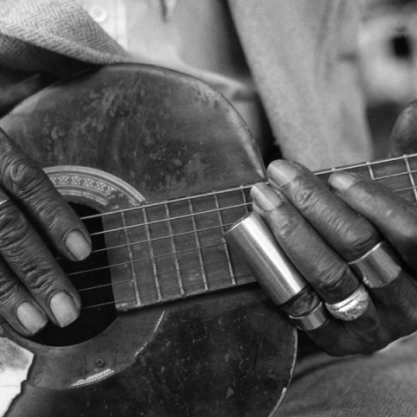
Get involved
& give back
The Music Maker Foundation is a 501(c)(3) nonprofit organization that depends on thousands of supporters. Together, we work to meet the day-to-day needs of the artists who create traditional American music, ensure their voices are heard, and give all people access to our nation’s hidden musical treasures. Please contribute or shop our store today.
